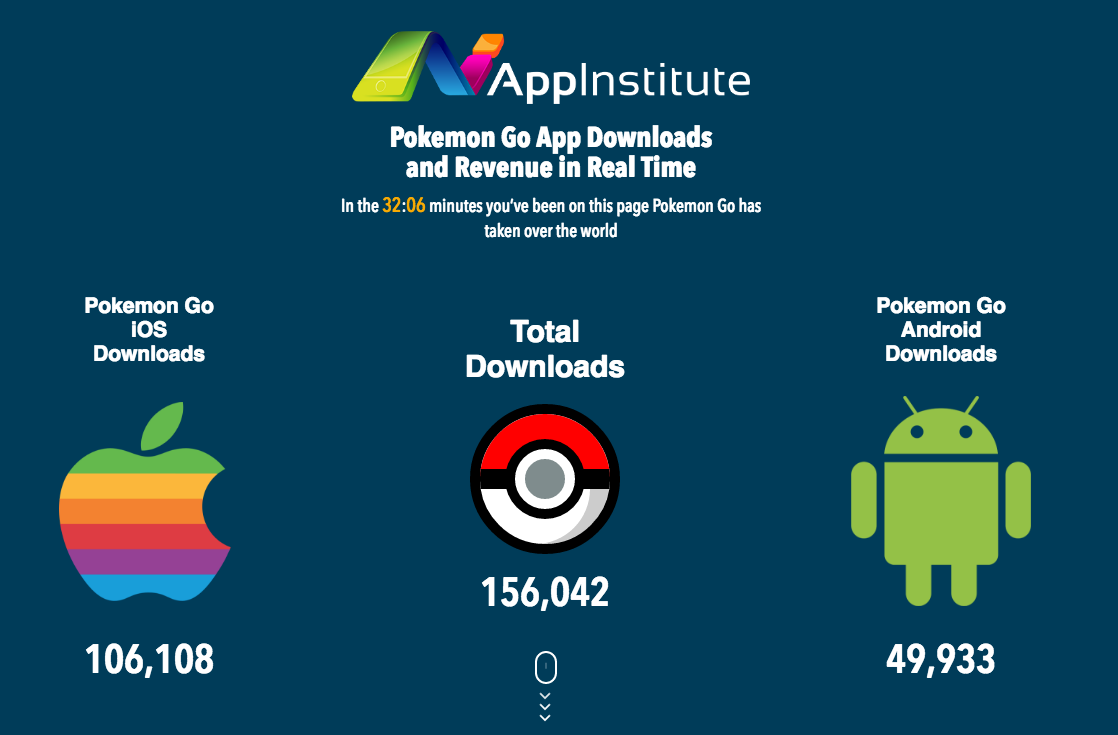Pokémon Go has become something of a phenomenon since its launch. And that’s without being a truly global product yet. Developer Niantic has had to stagger the release of the augmented reality game because their servers aren’t able to cope with global demand. Not that it matters a whole lot, the determined are finding ways to play anyway.

That’s because Pokémon Go seems to be pulling down around $380,000 every 30 minutes. In South African money, that’s about R5.4 million every half-hour. The next in line is a mobile game called Slither followed by Clash of Clans, both of which are managing about a quarter of Pokémon Go‘s present revenue. It’s also scooping up about 150,000 downloads in the same time frame.
It should come as no surprise then that Nintendo, a company which isn’t actually directly involved in the AR game (though they do own the Pokémon brand), has doubled in value since the game’s launch. Nintendo is trading at $42.5 billion at present. The company also set a record last week for single-day trading in its native Japan, a location where Pokémon Go has yet to even launch. Nintendo traded 476 billion yen, or $4.5 billion, on Friday, 15 July, beating the previous record set by Tokyo Electric. Right now Nintendo has a higher market value than Sony – not Sony PlayStation. Sony. All of it, which is valued at around $40 billion.
Now, if you’ll excuse us, we’re going to be heading back to that AppInstitute counter and daydreaming about what it would be like if all those funds were dumped directly into our bank accounts. And, after that, it’s time to hit the next Pokéstop.
Source: AppInstitute